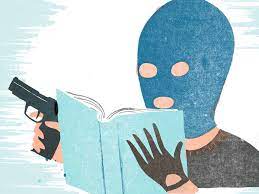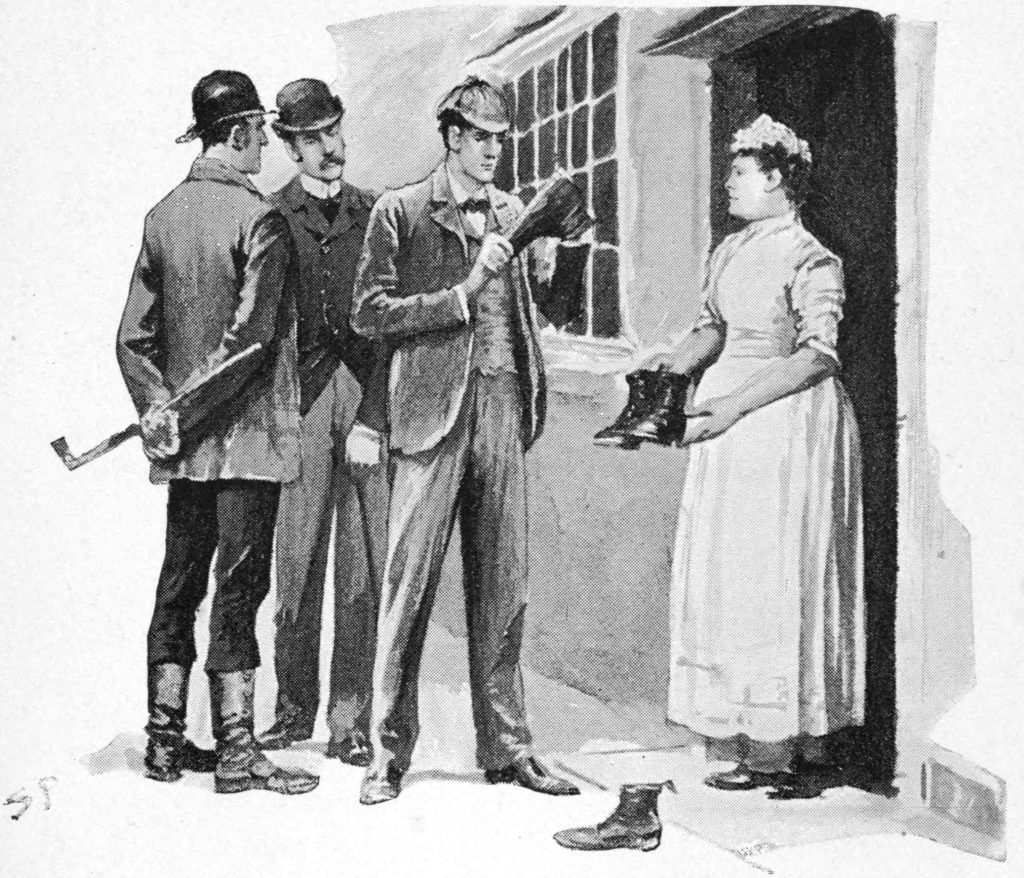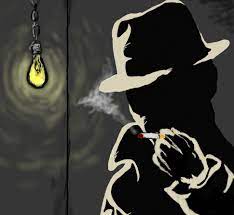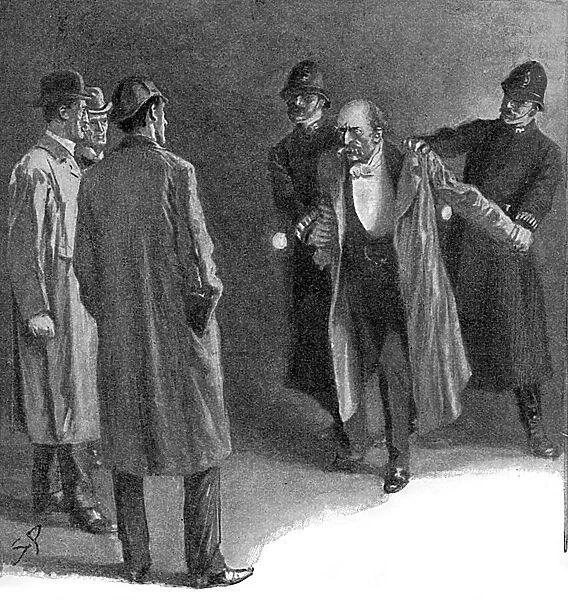Humans are naturally inquisitive and truth-seekers. Since we are big on the adrenaline rush, the satisfaction of confronting evil and participating in a thrilling plot-driven adventure, crime fiction has been widely written and read. Established in the 19th Century, Edgar Allen Poe’s ‘The Murders in the Rue Morgue’ introduced the world to a new genre. Intertwined with suspense, drama and conflict, brilliant crime fiction keeps the readers on their toes.
However, to read and relish it and to to write it are two altogether different things. Therefore, for aspiring Agatha Christies and Arthur Conan Doyles we bring for you this ultimate beginner’s guide to write crime fiction!
The challenge in writing crime fiction lies in presenting the plot in such a way that keeps the readers guessing and surprising them with the unexpected. With apt planning and presentation, the writers can create an exciting puzzle. Follow this article and know how to go about it.
What is Crime Fiction?
The literary genre deals with crimes, investigation, criminals, and their motives. It has an unfolding narrative, escalating plot that is directed towards a major reveal. Altogether, the genre trades in the dark and humane traits of humans which make them morally grey characters. Crime fiction revolves around suspense, deception, ill deeds, mixed motives, and complex timelines.
The subgenres of crime fiction are:-
- Detective fiction
- Cozy Mysteries
- Hardboiled
- Police Procedural
- Whodunit
- Forensic crime

Tips to Master the Art of Writing Crime Fiction
Here are few tips to follow to write crime fiction which is gripping and intriguing. Know these important elements and master them with practice.
Read More Crime Fiction!
Immerse yourself in the crime fiction genre. It will not only enhance your writing skills but also brush up on your ideas on what has already been written.
Read every great crime tale, whodunnit, detective thriller and murder mystery. For instance, you can begin with The A.B.C. Murders (1936), The Adventures of Sherlock Holmes (1892) and Murder on the Orient Express (1934). Great classics in crime fiction are bound to give some food for thought to your inner detective and thrill-seeker. Thus, to learn about what has already been written is imperative to think about what you can come up with next.
One has the freedom to do it all- whether it is writing your classic hardboiled crime fiction or introducing a contemporary twist with complex (and unreliable) characters, there is one rule for crime fiction- that there are no rules at all. However, common sense, logic, deduction and human follies are the key to write a good crime fiction novel.

Observe, Note and Learn to Write Crime Fiction
When you read, read like a writer. Often, we read from the point of view of a layman- but this time, try absorbing the story as its writer. Try to surmise what comes before and trace your path. Moreover, observe how the writer deploys the plot and develops her characters. Take note of the subtle changes in the plot and if you happen to like or dislike something ask yourself why it may be the case. Great crime fiction writers are often found in people with good critical thinking skills.
Secondly, deploy ‘Who? What? When? Where? Why? How?’ questions liberally. Draw mind maps connecting characters, their actions and their motives. This layout will give you an idea about how to proceed with your story.
Thirdly, let the story unfold with well-paced twists and turns. Learn and research technical aspects to avoid blunders. For example, you must know about poisoning, chemical reactions, hacking and forensics- even the knowledge of human anatomy- if you are using it in your story.

Choose a Perspective
It is advisable to choose a perspective that doesn’t confuse the readers too much, yet gives required, but sketchy information.
This is essential to create suspense and conflict. The perspective might stick near the protagonist. It is considered difficult to write in the first-person narration as it keeps us away from the development of other characters and scenes. Therefore, choose the perspective cautiously and wisely. You can even take the unconventional route of narrating a story from the point of the criminal!

Intrigue, Suspense and Conflict
The above three ingredients are important when you are decoding how to write crime fiction. You may open your story with a crime scene.
The most important aspect of the crime fiction genre is that it should be plot-driven. The crime is the driving aspect of the story and hence, the readers must be in the game from the start.
Keep the game afoot and consequently, initiate investigations, introduce characters and play with alibis. Adding suspense about what might happen next and the conflict between the characters- with each other and themselves will contribute to your plot.

Similarly, handle the central conflict of your story which will give rise to the suspense. Create tension that will hook the readers. For example, the main suspense might be who the murderer is.
Time and Setting
Do you think unfolding your story into a constrained time frame might enhance the themes of suspense and drama?
The ticking clock is an evergreen recipe for creating a gripping, page-turning novel. One of the major drawbacks of extended mystery fiction is that it might get off track or become monotonous.
It can become challenging to maintain the high-level suspense in such a case. However, it may also be used to create a false sense of security and meanwhile unravel the next surprise. Both the approach have it own benefits and drawbacks.

Lean into the atmosphere your setting provides. Decide where do you want your story to unfold. Whether it’s the teeming Los Angeles or the serene outer suburbs, make the most out of your location.
Dissonance can be used while choosing a setting. The more serene the location, the more dangerous the crime will look. It heightens the readers’ suspicions. The setting itself can elicit natural outrage and shock from the readers.
Red Herrings and Deus Ex Machina
By red herrings- we don’t literally mean a flame-colored fish, but something fishy. Red herrings are pieces of information or clues that are intentionally meant to mislead the readers.
The mastery of this instrument lays the foundation of an incredible mystery. However, underscoring only one or few red herrings might be too obvious and the readers might figure it out. Therefore, it is suggested to include numerous red herrings to act as a decoy which will confound the readers. For example, numerous suspects or the identity of the main suspect.

Deus ex machina refers to the situation where something unexpected is introduced in the storyline to resolve the plot miraculously. No matter how tempting it seems to include deus ex machina, avoid the temptation! (Imagine a miraculous downpour that saves our captivated protagonist in the flaming cottage). Be pragmatic in your approach.
Developing Characters
Develop strong, flawed and interesting characters. Your character does not have to be likeable or stereotypical to acquire readership. A flawed and convincing hero is likely to be more appreciated by the audience. However, the readers must feel that our sleuth is dedicated and interested. Intertwine the plot in such a way that our detective risks his life to get to the root of the crime.

Secondly, antagonists are as important as protagonists. A well-written antagonist is someone who throws a challenge in the face of our detective- and such that it commands the admiration of the readers (and the detective as well). Nothing intrigues the readers more than a formidable villain. Therefore, make sure to create complex and humane villains that have their own story and reasons, no matter how crooked they are.
Involve the Reader and Cut the Mustard
Remember you can only build suspense when the readers trust you enough to not let down them. Do not disappoint them when it comes to major plots and ups. Keep them guessing and yet provide them with security that you would cut the mustard no matter however unsolvable it seems!

Final Thoughts
Thus, writing crime fiction might seem intimidating at the beginning, but with these beginner-friendly tips- you will be able to make a start. We encourage you to watch out for crimes around you- nothing works like real-life inspiration. However, we wish for your safety and that you are not the victims of real-life crimes. But we can hope for you to become a crime fiction master- an illusionist, a storyteller and an investigator all rolled in one!
To offer some more help on the subject, we encourage you to enroll yourself in our Creative Writing Course where we will break down the basics of crime fiction and other literary genres for your understanding. The personalized attention from our expert faculty will help you churn out brilliant writing in no time. However, there are no red herrings here, we have you covered from the beginning to the expert level in this creative writing journey- but who knows what you might see next on the Podium Blog which will end up becoming your new fancy?
Stay tuned to know more about Creative Writing, Children’s Books and Films, and more on the Podium School Blog!
Share with your friends





